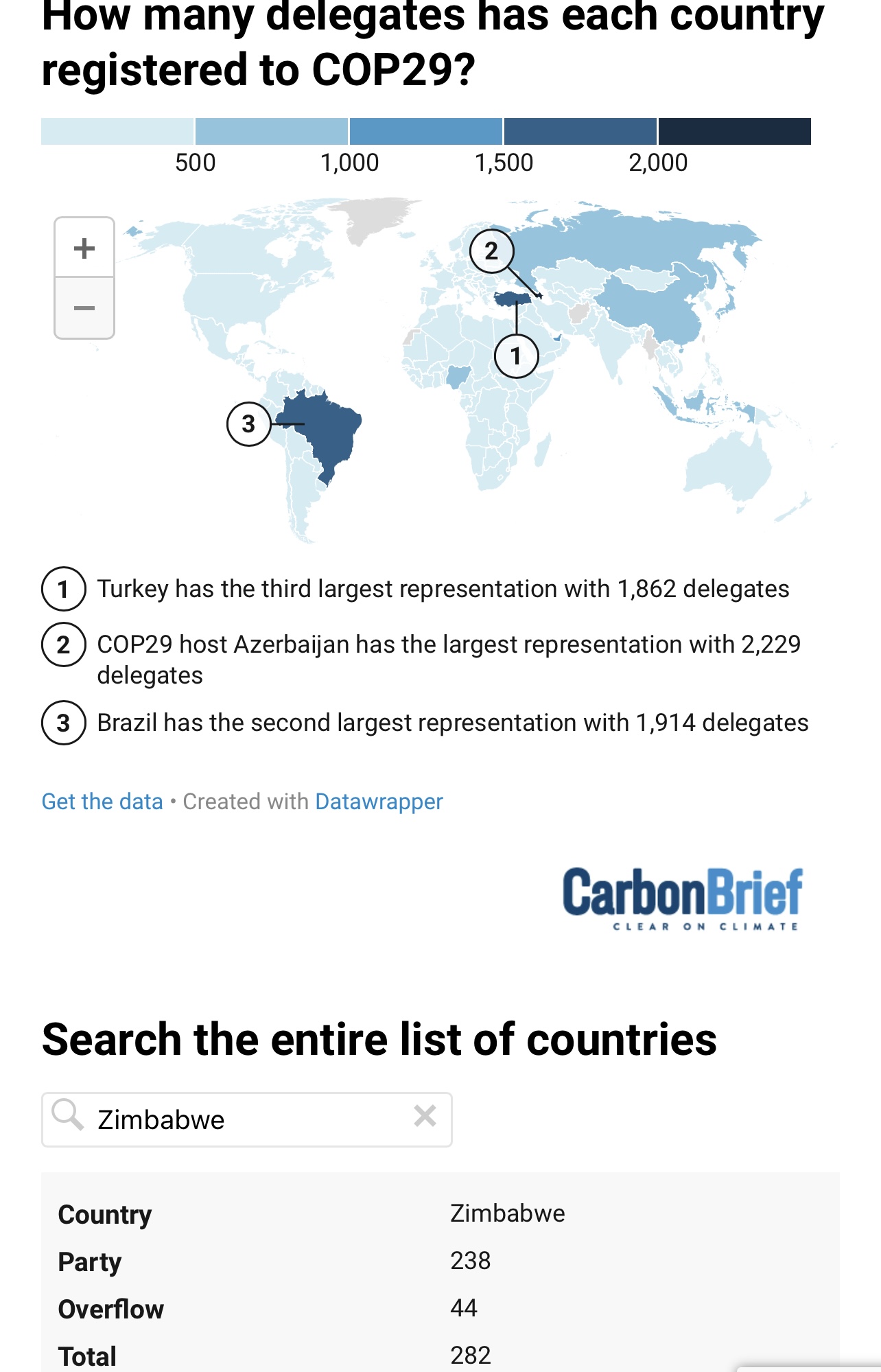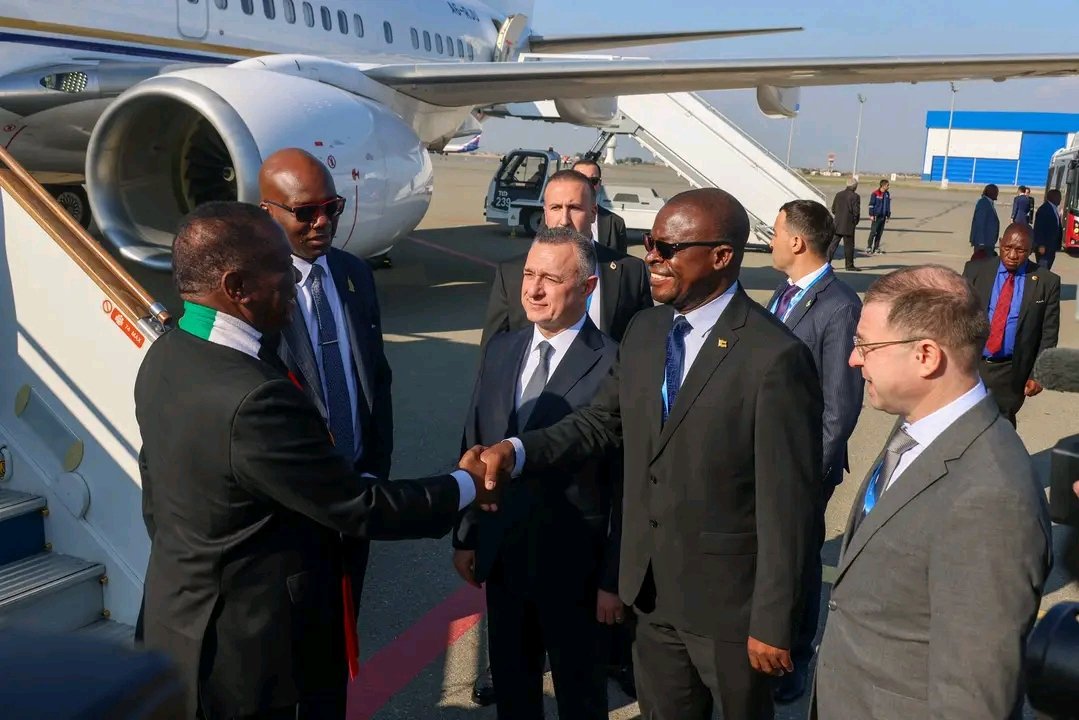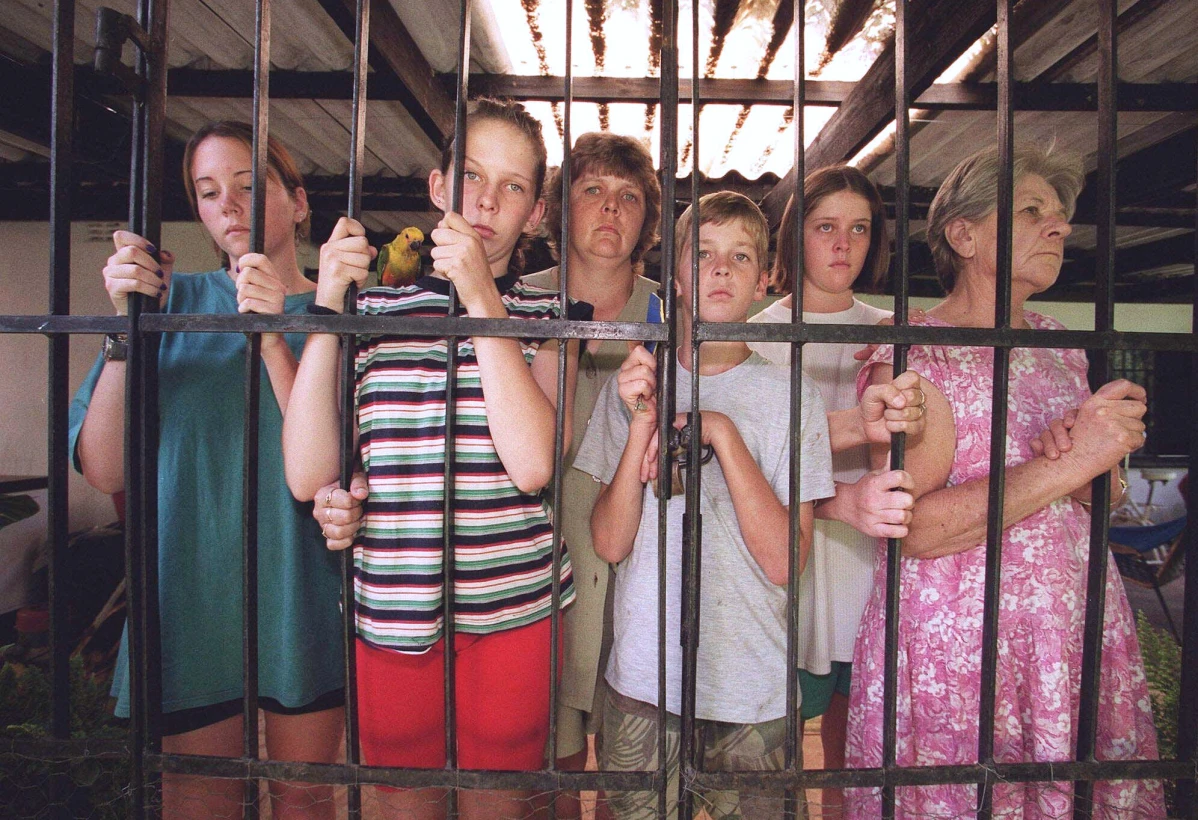HARARE – President Emmerson Mnangagwa took a huge delegation of 238 people to the 2024 United Nations Climate Change Conference (COP29), according to data released by organisers of the annual summit being held in Azerbaijan.
A further 44 individuals, who are not part of the official government delegation and will be paying their way around Baku are also listed under Zimbabwe in a special category called “Overflow.”
By comparison, South Africa – with a population of 60 million – is sending just 51 delegates; France 63; Mozambique 78 and Botswana 39.
Zimbabwe is in the grips of its worst drought in 40 years, with more than half of its population in need of food aid, but the government is paying each delegate to the Baku conference an allowance of US$1,000 daily for five days, an equivalent of US$1.2 million.
Mnangagwa left Harare on Sunday for the conference aboard a US$12,700 per hour private jet chartered from Dubai in the United Arab Emirates.
The Boeing 737-700 BBJ, registration A6-RJV, is owned by Royal Jet Services. It has a configuration of 34 seats split as 8 VIP, 8 business class and 18 standard. It also comes with a bedroom.
An 18-hour round trip between Harare and Baku would have cost the taxpayer just over US$200,000, rising with the cost of the empty leg flights between Dubai and Harare.
The five-day trip will gobble up close to US$2 million including commercial flight costs for most of the delegates- enough to feed thousands of impoverished people at home.

Around 30 African heads of state and government will take the floor at the summit. Mnangagwa spoke on Tuesday, telling the summit that “the time for half measures is over and we all have a duty to implement our agreements.”
All nations on the continent have rallied behind a common position endorsed by their heads of state, with African negotiating teams subsequently tasked with defending their interests during the discussions.
The summit will see the establishment of the New Collective Quantified Goal (NCQG) on climate finance. This target will replace the 2009 pledge by developed countries to mobilise $100 billion per year for climate action in developing countries.
Ongoing negotiations for the NCQG have been slow and bogged down by numerous disagreements including over the fund’s size, what kinds of funding are included, who should contribute, and how adaptation, mitigation, loss and damage, and accountability will be addressed.
















